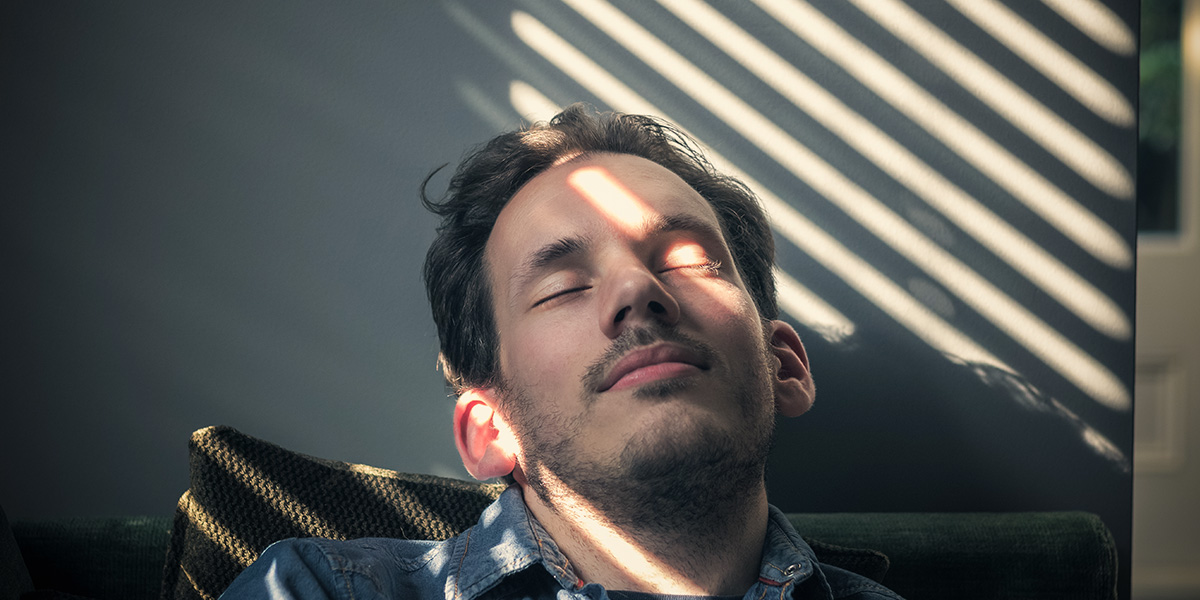Small screens can have a big effect on family life. Here are some ways you and your family can work together to reduce screen time.
What to do if you’re not getting enough sleep
Have you been struggling with getting a good night’s sleep? Here’s why you may not be getting the rest you need and what you can do to sleep more soundly.

Are you worried about interest rates hikes, soaring inflation and talk of a looming recession? Do you lie awake at night wondering about your finances?
The current economic situation may be disrupting your sleep.
Even before the pandemic, according to the Public Health Agency of Canada:
- 1 in 2 adults have trouble going to sleep or staying asleep.
- 1 in 5 adults do not find their sleep refreshing.
- 1 in 3 adults have difficulty staying awake during waking hours.
What is the impact of poor sleep quality?
Researchers noted that prolonged sleep loss can lead to problems with your:
- mental health (e.g. depression),
- physical health (e.g. high blood pressure and diabetes), and
- occupational health (e.g. injury or disability).
We know that good sleep is part of a healthy lifestyle. But what can we do to get there?
Is your phone keeping you awake?
Dr. Charles Samuels is Medical Director of the Centre for Sleep & Human Performance in Calgary. He claims that, often, screen addiction is at cause for poor sleep habits.
“The bottom line is we don’t put our devices away,” he says. “We’re connected and plugged in right up to bedtime.”
And it’s not just your device’s blue light that’s keeping you up. “Yes, there’s plenty of research that looks at blue light and its effects on circadian rhythms [our natural wake and sleep cycles],” Samuels says. “But we now have screen blockers on our devices, so we can’t always place all the attention there.”
Instead, Samuels believes we must also look at our own bedtime behaviour. “Many adults and children stay up at all hours of the night. They’re scrolling or streaming without noticing how much time has passed,” he says. “The longer they’re on their phones, the less time they have to actually sleep.”
In an age of 24/7 news outlets, it can be hard to avoid “doomscrolling.” That’s when you can’t help yourself from scrolling through bad news. Soaring inflation and talk of a looming recession have meant no shortage of glum news.
What can you do to get more and better sleep?
Want to improve your sleep routine and prioritize sleep time over screen time? Samuels offers these expert tips:
1. Make sleep a priority. Sleep is just as important to health as nutrition and exercise, says Samuels. Put it on your schedule just as you would a fitness routine or a trip to the grocery store. Choose a regular time to go to bed and stick to it.
2. Ditch the phone one hour before bed. Disconnect from your devices or screens when it’s close to bedtime. You’ll be less likely to continue scrolling or binge-watching for hours. Instead, try more relaxing activities like meditation or taking a bath. If you have kids, make sure they ditch their screens at night, too.
3. Cut down on caffeine and alcohol. A cup of coffee or a glass of red wine might have positive health effects in small doses. In larger amounts, they can disrupt your sleep routine. “Limit caffeine to one or two cups of coffee a day in the morning. Reduce alcohol consumption at night,” advises Samuels.
Read more: How does alcohol affect our sleep?
4. Know how much sleep you really need and catch up. To maintain good health, sleep is key. So how many hours should you get? According to the Public Health Agency of Canada:
- Adults need 7 to 9 hours.
- Kids aged 5 to 13 need 9 to 11 hours.
- Teens (14 to 17) need 8 to 10 hours.
“If you know your family is sleep-deprived, make it a priority to catch up,” says Samuels. Other recommendations to get more restful nights of sleep include:
- Keep a regular time for sleep, meals, work and social contacts. These activities are important time cues that help maintain your sleep schedule. Lockdowns, working from home and social distancing might have thrown your schedule. As things slowly return to normal, adjust your schedule to a new normal, too.
- Get as much daylight exposure as possible. Turn on the lights, open the curtains or go outside when you can. These small things can all help to regulate your circadian rhythm.
- If sleep does not come within 15–20 min, get out of bed. Engage in quiet activities (like reading). Return to bed only when you’re feeling sleepy.
What do you do if you can't fall or stay asleep?
Most of us will experience a bad night’s sleep occasionally. But what happens if your sleep is restless or disruptive? “You may have a sleep disorder,” says Samuels. “In which case, you should see a doctor or a health-care provider for help.”
The most common sleep disorders are insomnia, snoring and sleep apnea, according to Samuels. “These sleep disturbances require medical attention.”
Your workplace benefits might even help you get the help you need. Some workplace benefits offer access to sleep clinics or help offset the cost of medical equipment. Check with your HR department to see what your employer offers.
Do you have workplace benefits with Sun Life?
Sign in to mysunlife.ca to get your coverage details.



